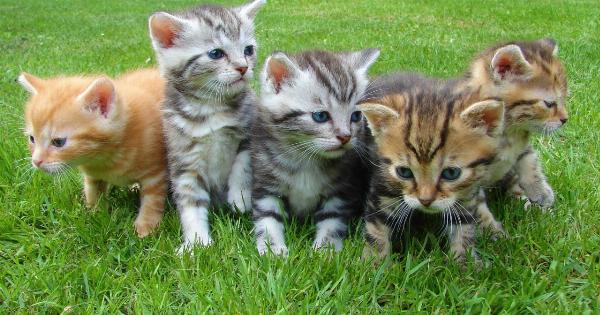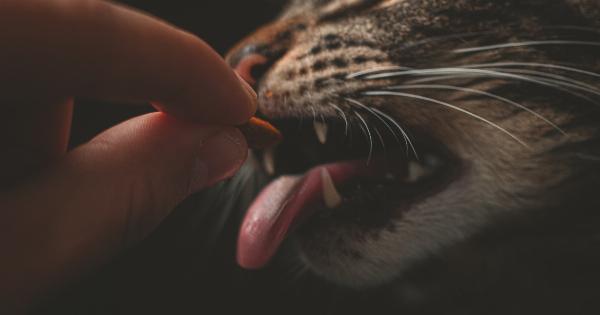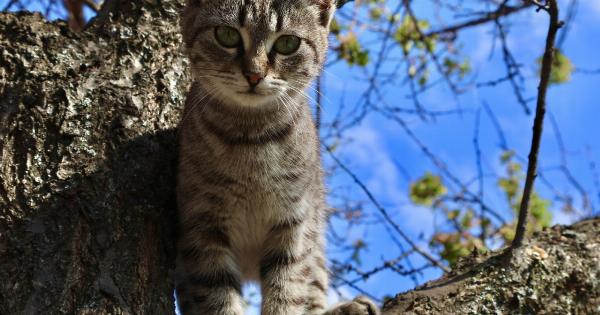When it comes to ensuring the health and well-being of our furry feline friends, providing them with a balanced diet is essential. Cats, like humans and many other animals, require a variety of nutrients to support their growth and overall health.
One vital group of nutrients that plays a crucial role in various physiological functions is amino acids.
What are Amino Acids?
Amino acids are the building blocks of proteins, which are essential for the structure, function, and regulation of the body’s tissues and organs. These organic compounds are primarily composed of carbon, hydrogen, oxygen, and nitrogen atoms.
While there are over 500 known amino acids, only 20 serve as the building blocks of proteins.
Essential Amino Acids for Cats
Cats, like all animals, require specific essential amino acids that cannot be synthesized by their bodies and must be obtained through their diet. These essential amino acids include:.
- Taurine
- Methionine
- Lysine
- Arginine
- Leucine
- Isoleucine
- Valine
- Phenylalanine
- Threonine
- Histidine
The Role of Taurine in a Cat’s Diet
Taurine is one of the most critical amino acids for cats. Unlike most other mammals, cats cannot synthesize taurine from other amino acids effectively.
Taurine deficiency can lead to severe health issues, including heart disease, vision problems, and impaired reproduction. It is essential for maintaining healthy eyesight, bile acid production, cardiovascular function, and the development and function of the nervous system.
The Importance of Methionine and Lysine
Methionine and lysine are also essential amino acids for cats. Methionine is crucial for maintaining healthy skin, coat, and nails, as well as supporting liver function and detoxification processes.
Lysine is essential for the production of antibodies, hormones, and enzymes, and plays a vital role in maintaining a strong immune system.
Arginine for Detoxification
Arginine is vital for cats as it has a significant role in detoxification processes in the body. It helps in the removal of ammonia, a byproduct of protein metabolism, which is toxic to cats if accumulated excessively.
Arginine deficiency can lead to ammonia build-up, causing conditions like hyperammonemia, which can be life-threatening for cats.
Branch Chain Amino Acids for Muscle Maintenance
Leucine, isoleucine, and valine are branch chain amino acids (BCAAs) that play a crucial role in muscle maintenance, growth, and repair.
They are particularly beneficial for active or highly energetic cats and help support their muscle health and overall athleticism.
Phenylalanine, Threonine, and Histidine: Supporting Cat’s Health
Phenylalanine is essential for the production of neurotransmitters, while threonine plays a critical role in the production of antibodies and collagen.
Histidine is necessary for supporting a healthy immune system and plays a role in the production of histamine, a compound involved in immune and inflammatory responses.
Choosing a Quality Cat Food with Adequate Amino Acids
Now that we understand the importance of amino acids for cats, it becomes crucial to select a high-quality cat food that provides all the necessary amino acids in adequate amounts.
When choosing cat food, it’s essential to read the ingredient list and look for animal-based protein sources as they contain complete proteins with the essential amino acids cats need. Avoid foods with excessive plant-based protein components, as they might not provide all the necessary amino acids.
Supplementing Amino Acids for Special Dietary Needs
In certain cases, such as in the presence of a medical condition or specific dietary restrictions, a veterinarian may recommend additional amino acid supplementation.
However, it is crucial to consult with a professional to determine the appropriate dosage and form of amino acid supplementation for your cat’s specific needs.
The Dangers of Amino Acid Deficiencies in Cats
A deficiency in any essential amino acid can lead to severe health problems in cats. Taurine deficiency, for example, can result in dilated cardiomyopathy, retinal degeneration, and reproductive abnormalities.
Methionine and lysine deficiencies can lead to poor coat quality, sluggishness, and a weakened immune system. Arginine deficiency can cause toxic ammonia buildup, leading to potentially life-threatening conditions.
Conclusion
Amino acids are crucial for the overall health and well-being of cats. From supporting vital organ function to maintaining healthy skin and coat, a balanced and complete diet rich in essential amino acids is essential.
Understanding the specific amino acid requirements of cats and providing them with the necessary nutrients can help unlock the benefits of these vital components, ensuring our feline companions live happy and healthy lives.































